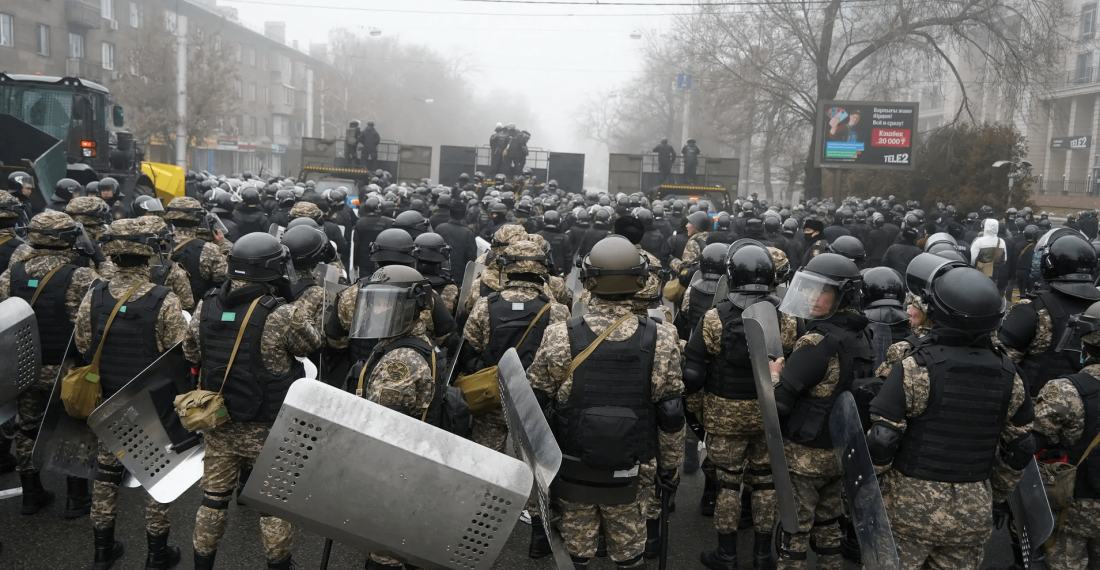Dozens of people were killed in protests in Kazakhstan's largest metropolis, Almaty during the night from Wednesday to Thursday (6 January), according to local police. Eight police officers and security officials were killed earlier in the protests against doubling the price of LPG fuel and government policy. According to Kazakh state television (Qazaqstan), the death toll among members of security forces has risen to 13 people, including two who had been decapitated.
The killed protesters were said to have come into contact with military forces when they tried to storm government buildings. On Thursday morning, police were said to have fired shots in the main square Republic Square in Almaty, according to witnesses cited by the Reuters news agency.
The Russian news agency TASS quoted the Kazakh Ministry of Healthcare as saying more than 1,000 people had been injured during the protests, and more than 400 of them were in the hospital.
Kazakhstan's President Kassym-Jomart Tokayev has asked Russia and other allies in the Collective Security Treaty Organisation (CSTO), for military support to quell the ongoing protests in the country. In a TV speech, Tokayev said he had asked for help from the CSTO to combat the "terrorist threat" in the country. In addition to Kazakhstan and Russia, the alliance also includes Armenia, Kyrgyzstan, Tajikistan and Belarus.
It was announced Wednesday evening that the CSTO had agreed to Tokayev's request. On Thursday, Russia sent airborne forces to Kazakhstan as part of a "peacekeeping force". According to Moscow, they will be used to guard important buildings and sites, among other things. The Kremlin has not said how many troops have been deployed. Armenia has also promised military assistance.
"In view of the address of President of Kazakhstan Kassym-Jomart Tokayev and considering the threat to national security and sovereignty of the Republic of Kazakhstan, caused in particular by interference from the outside, the CSTO Collective Security Council in accordance with Article 4 of the Collective Security Treaty made the decision to send CSTO Collective Peacekeeping Forces to the Republic of Kazakhstan for a limited period with the aim of stabilization and normalization of the situation in this country", Pashinyan wrote in Facebook according to TASS.
On Thursday, also the internet was down for the second consecutive day. The government decided to do this on Wednesday in an attempt to stem the protests. Banks were closed by order of the National Bank of Kazakhstan.
On Wednesday, Nursultan Nazarbayev, Kazakhstan's elder statesman and fiorst president, resigned from his post as Chairman of the National Security Council. amid sweeping personnel changes in the security sector as the government tries to come to terms with the biggest crisis in Kazakhstan's moder history as an independent state.







